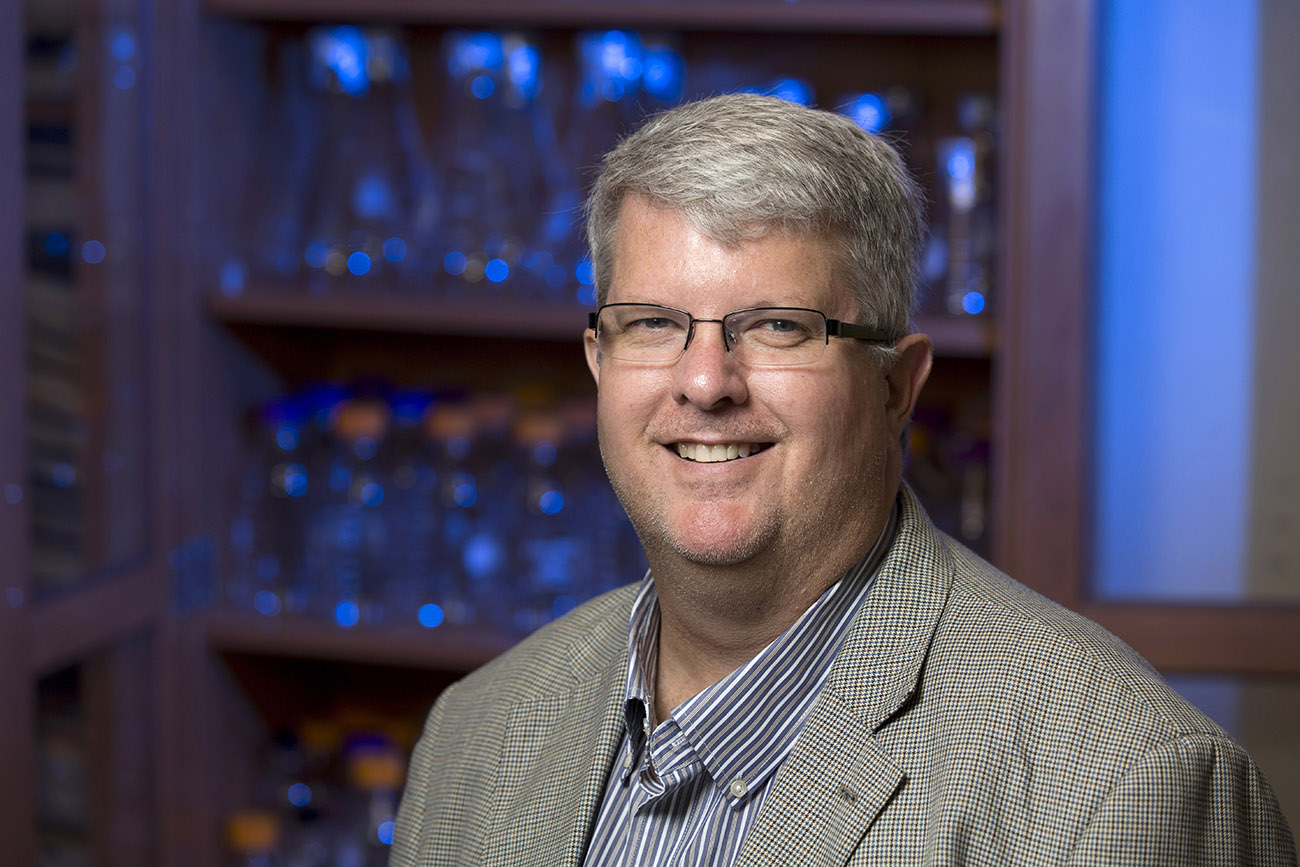Ted M. Ross is one of 99 new faculty members at UGA (see UGA welcomes new faculty). He joined the UGA College of Veterinary Medicine this year as the Georgia Research Alliance Eminent Scholar in Infectious Diseases. One of the nation’s leading infectious diseases researchers, his laboratory develops and tests vaccines for a variety of viral diseases, such as influenza, dengue, respiratory syncytial virus, Ebola and HIV/AIDS.
“Dr. Ross has an outstanding record of success in translating his pioneering research into promising new vaccine candidates,” said UGA President Jere W. Morehead. “His expertise complements the University of Georgia’s growing research enterprise in infectious disease and will strengthen the university’s ties to vaccine researchers at other institutions and with Georgia’s economically important life sciences industry.”
Ross came to UGA after serving as director of the vaccines and viral immunity program at the Vaccine and Gene Therapy Institute of Florida. He is particularly well known for his efforts to create a universal flu vaccine that protects against all strains of seasonal and pandemic influenza, work he began while a faculty member at the University of Pittsburgh.
“There are many different strains of influenza that affect humans, and the flu shot we get is based on predictions about which strains are going to be most prevalent,” Ross said. “What this means is that we have to change the vaccine every year, but it can’t protect you from all forms of flu. A universal vaccine would mean that people would no longer have to get an annual flu vaccine; it would be much more like what we have for polio, smallpox or mumps, where you get one or two shots and you’re protected for many years or even a lifetime.”
Ross is conducting his research with nearly $18 million in external funding from a variety of federal agencies, foundations and corporate sponsors. In 2012, Ross licensed his universal influenza vaccine platform to Sanofi-Pasteur, and he hopes to begin clinical trials for that vaccine within the next two years.
The Georgia Research Alliance has partnered with Georgia’s research universities to recruit world-class scientists who foster science- and technology-based economic development since 1990. The GRA also invests in technology for research labs, helps commercialize university-based inventions and facilitates collaboration among universities, business and government.
As part of his appointment, Ross also will serve as director for UGA’s newly developed Center for Vaccines and Immunology, which promises to unite researchers from many different parts of campus to find new ways of combating a number of dangerous pathogens that affect both humans and animals.
“Our broad goal is to better understand the fundamental science of vaccine and immune responses,” Ross said. “If groups from the center bring new vaccines to the marketplace and they get licensed, that’s great, but we want to conduct basic science that will help us understand the immunology of infectious disease and how vaccines work in different populations depending on their age, gender or race.”
Researchers in the center also will examine the role of genetics and why people react differently to vaccine formulations so that scientists can more easily construct vaccines that work well in as many people as possible, Ross said.
“I am looking forward to working with the research faculty at the University of Georgia to develop cutting-edge, life-saving vaccines,” Ross said. “We expect to build a critical mass of scientists centered on immunology and vaccines for infectious diseases. Working together with biomedical and infectious disease researchers at UGA and the other leading institutions in the state of Georgia, we will work towards a world-class research community focused on developing the next generation of novel vaccines and immunotherapeutics.”


